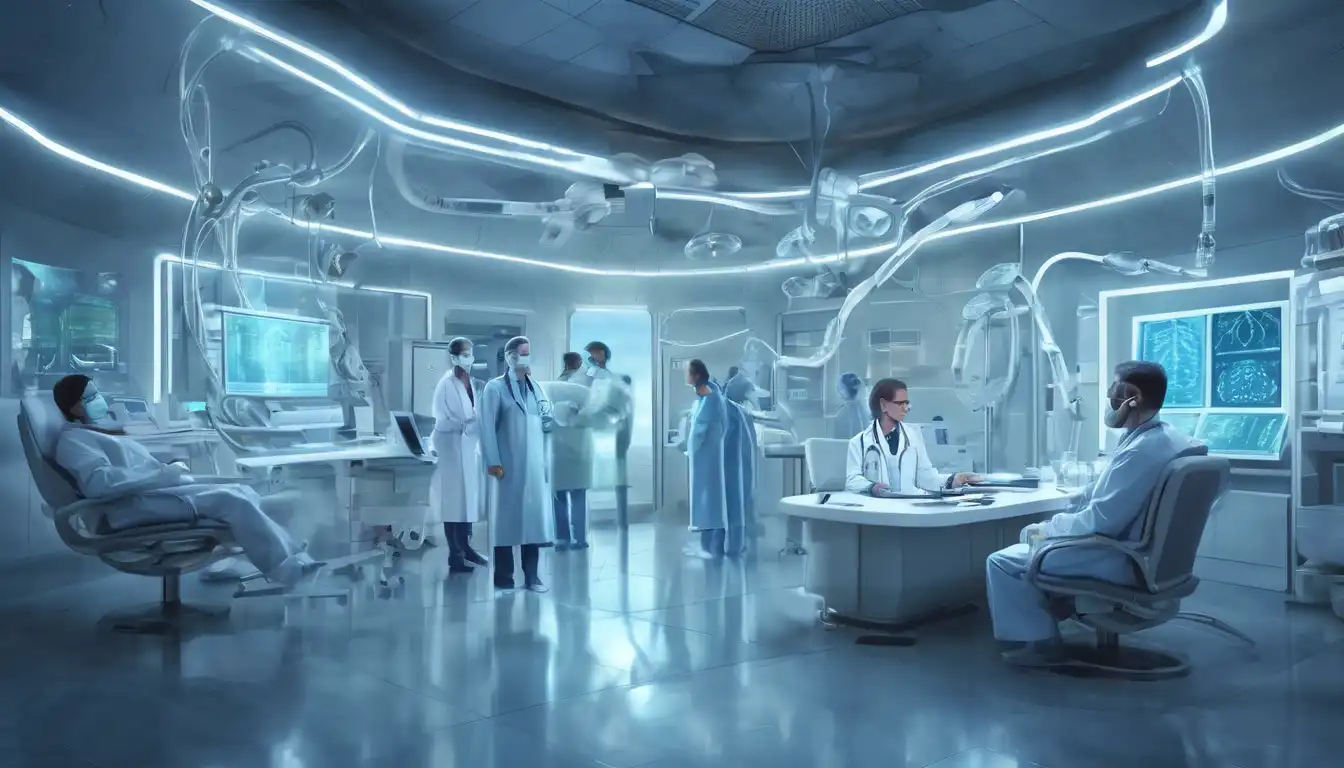Introduction to AI in Healthcare
Artificial Intelligence (AI) is revolutionizing the healthcare industry by providing innovative solutions to complex problems. From diagnostics to patient care, AI's role in modern healthcare is undeniable. This article explores how AI is transforming healthcare and what the future holds.
AI-Powered Diagnostics
One of the most significant contributions of AI in healthcare is in the field of diagnostics. AI algorithms can analyze medical images with precision, often surpassing human accuracy. This not only speeds up the diagnostic process but also reduces the chances of human error.
Examples of AI in Diagnostics
- Machine learning models that detect early signs of diseases like cancer from imaging scans.
- AI tools that predict patient risks based on historical data and genetic information.
Enhancing Patient Care with AI
AI is also making strides in patient care, offering personalized treatment plans and monitoring patient health in real-time. Wearable devices powered by AI can track vital signs and alert healthcare providers to potential issues before they become serious.
Benefits of AI in Patient Care
- Improved accuracy in monitoring chronic conditions.
- Reduced hospital readmissions through predictive analytics.
AI in Drug Development
The drug development process is notoriously time-consuming and expensive. AI is changing that by identifying potential drug candidates much faster than traditional methods. This could lead to quicker availability of life-saving medications.
How AI is Used in Drug Development
- AI algorithms analyze chemical compounds to predict their effectiveness.
- Machine learning models simulate how drugs will interact with the human body.
Challenges and Ethical Considerations
Despite its benefits, the integration of AI into healthcare comes with challenges. Issues such as data privacy, ethical use of AI, and the need for regulatory frameworks are critical to address.
Key Challenges
- Ensuring the security of patient data used by AI systems.
- Addressing biases in AI algorithms that could affect patient outcomes.
The Future of AI in Healthcare
The potential of AI in healthcare is vast, with ongoing research and development paving the way for more advanced applications. As technology evolves, so too will the capabilities of AI to improve health outcomes worldwide.
What to Expect
- More personalized and precise treatments.
- Greater efficiency in healthcare delivery.
In conclusion, AI is set to continue its transformative impact on healthcare, offering solutions that were once thought impossible. By embracing these technologies, the healthcare industry can achieve unprecedented levels of efficiency and patient care.
